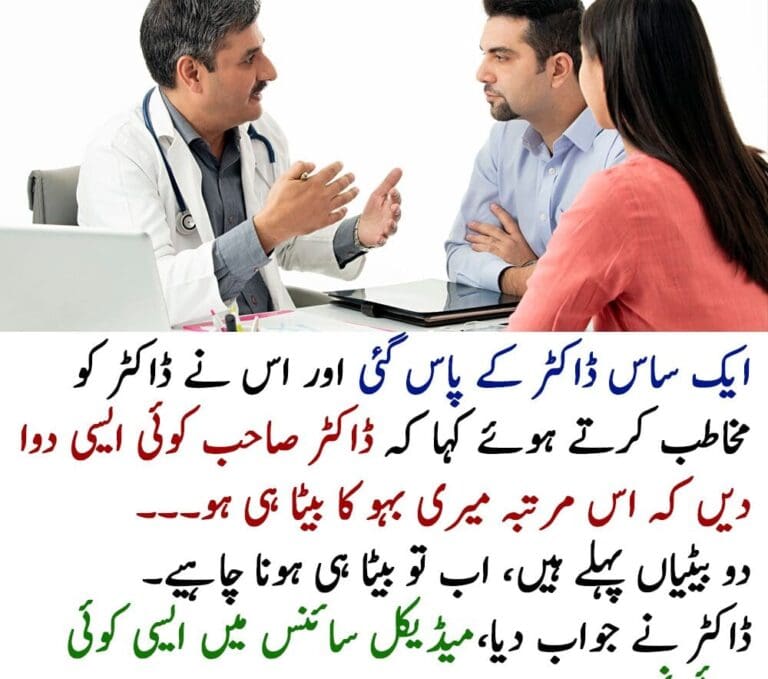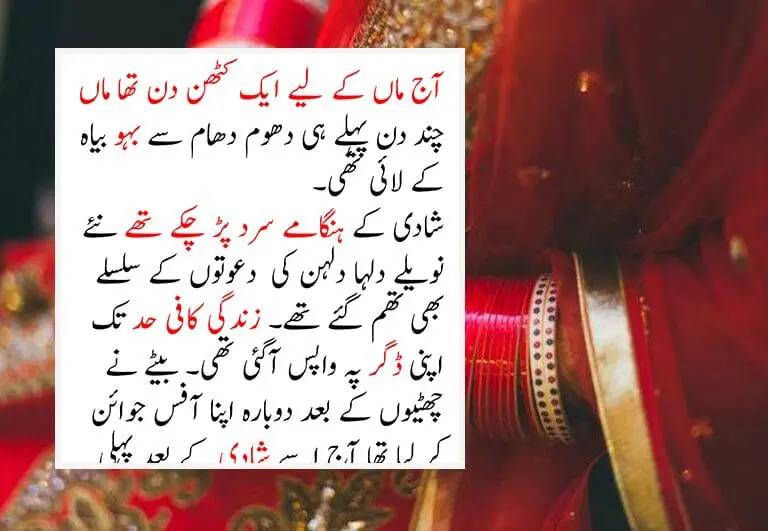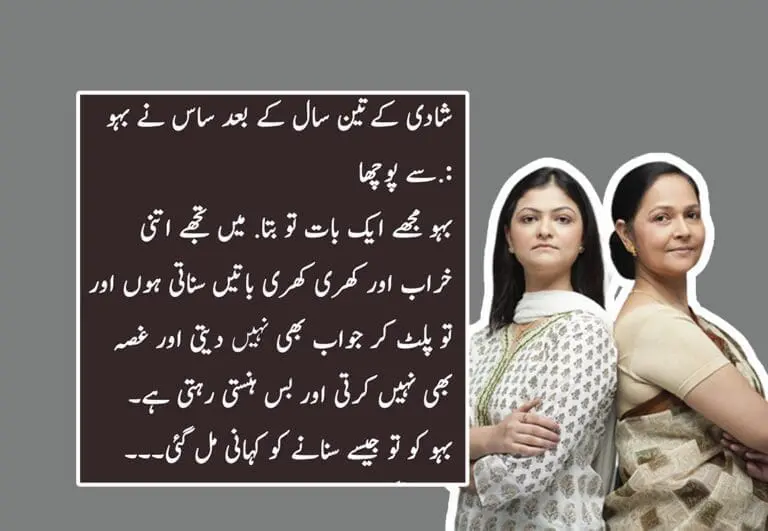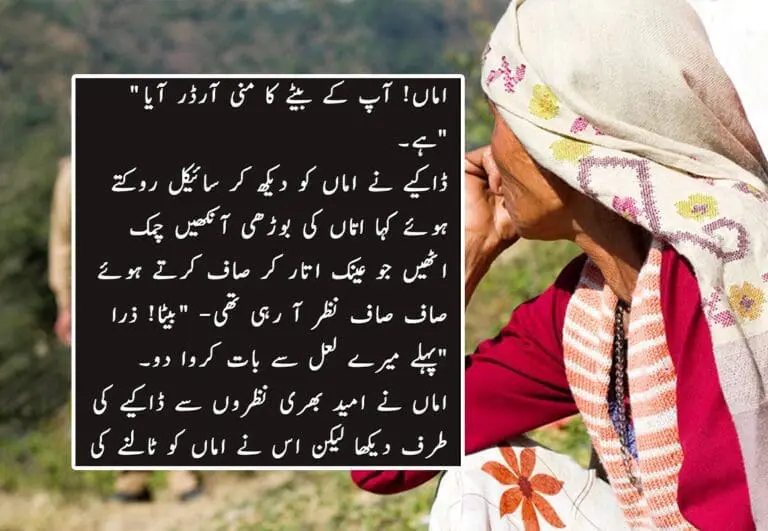In a humorous yet thought-provoking tale, a mother-in-law once visited a doctor with a unique request. She pleaded with the doctor, “Can you prescribe a medicine that will ensure my next child is a son? I already have two daughters, and now, I want a son.” The doctor, with a compassionate smile, responded, “I’m sorry, but there is no such medicine in the realm of medical science.”
READ IN URDU BELOW

Perplexed, the mother-in-law insisted on seeking another doctor’s opinion. However, the doctor clarified, “I didn’t say I don’t know the name of the medicine; I said such a medicine doesn’t exist in the world of medical science.” At this point, the girl’s father-in-law chimed in, highlighting that the doctor they consulted was, in fact, a lady doctor.
The doctor interrupted, dismissing the notion, stating that such claims were often made by fake Pirs, Fakirs, Hakims, and charlatans. In essence, it was all a hoax.
This led to the girl’s husband pondering the future of their family. He questioned the doctor, “Does this mean our lineage will not continue?” The doctor’s response was both enlightening and thought-provoking. He inquired, “What is the significance of transferring your genes to the next generation? Why is it essential to have a son?”
The father-in-law, bewildered, sought clarification. The doctor used a simple analogy to explain: “In Sahiwal, there is a special breed of cows that yield more milk. If only one cow of this breed remains, it becomes a concern that the breed’s milk-producing lineage might end. Similarly, there’s a unique species of parrots that can talk. If only one parrot of this species survives, it’s a cause for concern that the lineage of talking parrots might vanish.”
The doctor went on to emphasize that the family, like any other, is comprised of ordinary individuals. There’s nothing inherently special that must be passed down through a son. The doctor asked the father-in-law about his great-grandfather’s name, to which he could only muster a vague response, “Um, I don’t know.”
The doctor seized this opportunity to drive home his point. He remarked, “Your great-grandfather likely had the same concern – who would remember him? Today, even your own children might not know his name. When you are no longer here, what difference will it make if someone remembers you or not?”
The doctor illustrated his point by mentioning revered figures from history. Allama Iqbal and Ganga Ram, both long gone, are still remembered and celebrated today. Their names live on through their contributions to society. The doctor emphasized that it’s not just about leaving a son behind but about leaving a legacy.
Drawing inspiration from the life of the Messenger of God and his blessed family, the doctor highlighted how they spread their message and lineage through their daughters, changing the world. In light of this, the doctor concluded, “Don’t differentiate between daughters and sons. If a son is a blessing, a daughter is a mercy.”
The Significance of a Gynecologist’s Perspective
In this intriguing narrative, we explored the request of a mother-in-law who sought a medical solution to ensure the birth of a son. The doctor’s response challenged societal norms and provided a fresh perspective on the importance of children, irrespective of their gender. However, to fully understand the significance of the doctor’s viewpoint, we need to delve into the role of a gynecologist in shaping families and their understanding of childbirth.
1. The Role of a Gynecologist
A gynecologist plays a pivotal role in women’s reproductive health and family planning. They provide essential guidance and medical care to ensure safe pregnancies and childbirth.
2. Gender Neutrality in Parenting
The doctor’s message highlights the importance of gender neutrality in parenting. Sons and daughters can both contribute positively to society, and their gender should not determine their worth.
3. The Legacy of Allama Iqbal
By referencing Allama Iqbal, the doctor emphasizes the enduring legacy left behind by individuals who made significant contributions to society, regardless of their gender.
4. Empowering Women
The doctor’s perspective reinforces the idea that daughters can be equally empowering and influential, contributing to the world’s progress and well-being.
5. A Gynecologist’s Compassion
This story underscores the importance of gynecologists not only as medical practitioners but also as compassionate advisors who guide families towards healthy and informed decisions.
6. Shaping Future Generations
A gynecologist’s role extends beyond the delivery room; they have a hand in shaping the future by providing guidance on family planning and reproductive health.
7. Celebrating Diversity
The doctor’s message encourages us to celebrate the diversity of our families, valuing each member for their unique qualities and contributions.
8. Legacy and Remembrance
The doctor’s analogy with historical figures like Ganga Ram and Allama Iqbal reminds us of the enduring impact individuals can have on society, regardless of gender.
9. Revisiting Cultural Norms
This story prompts us to revisit cultural norms and stereotypes regarding gender and parenting, encouraging a more progressive and inclusive outlook.
10. Equal Opportunities
The doctor’s words inspire us to provide equal opportunities to both sons and daughters, allowing them to pursue their dreams and make a positive impact on the world.
Conclusion
In a lighthearted yet profound story, a gynecologist’s perspective challenges societal norms and emphasizes the importance of children, irrespective of their gender. This narrative reminds us that daughters are blessings, and their potential for greatness should never be underestimated. The legacy we leave behind is not solely determined by the gender of our children, but by the values, knowledge, and love we impart to them.



